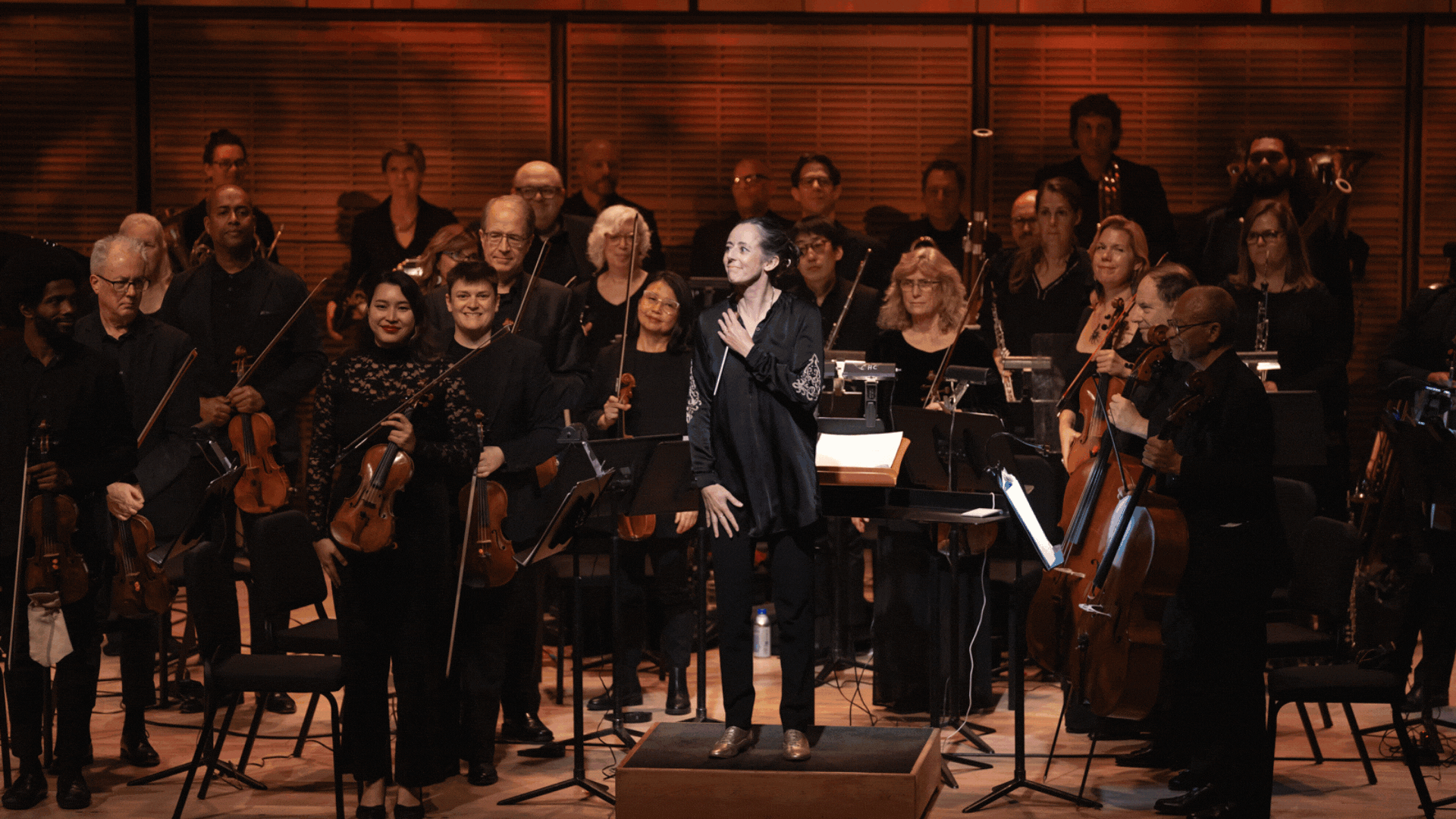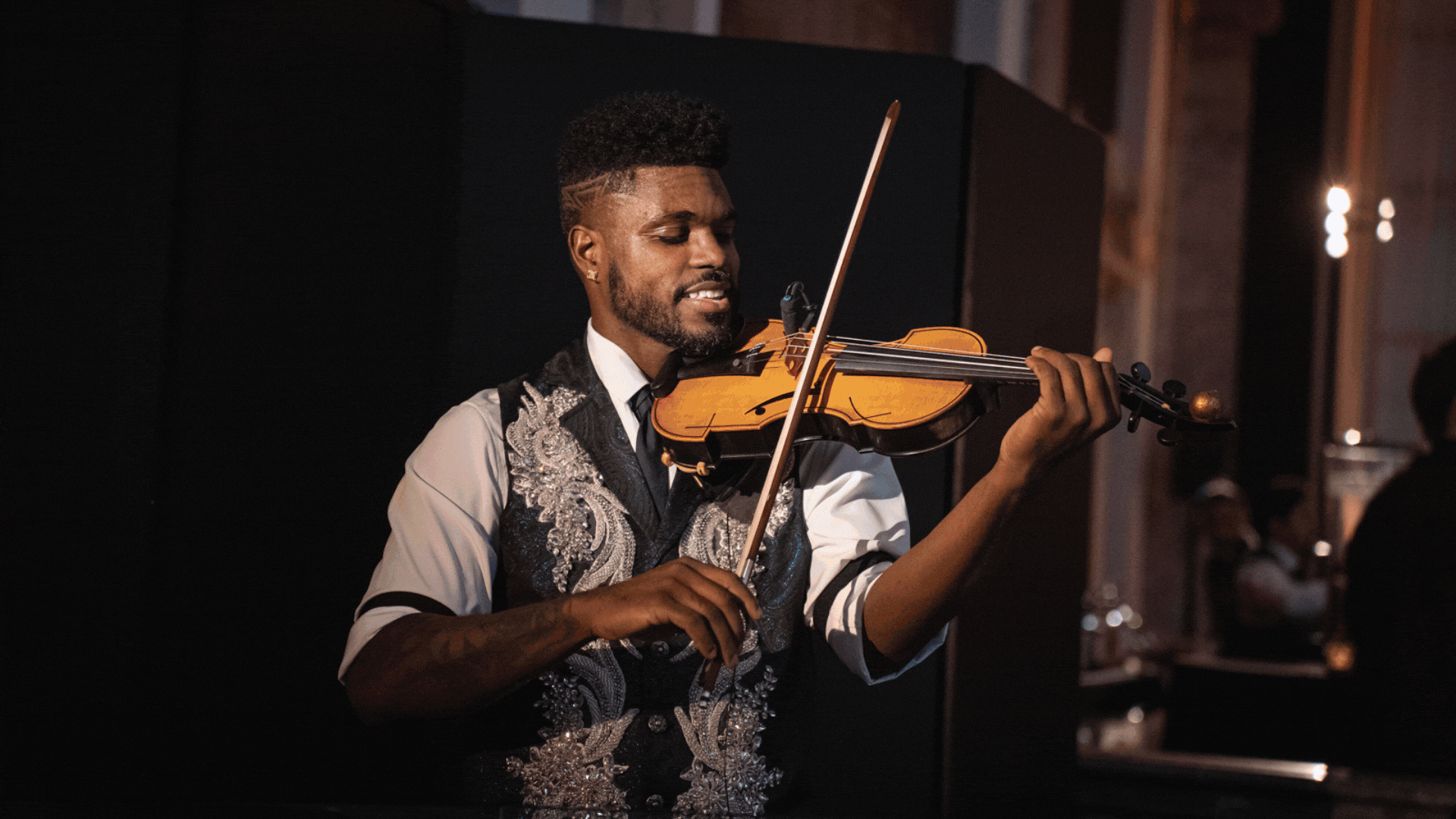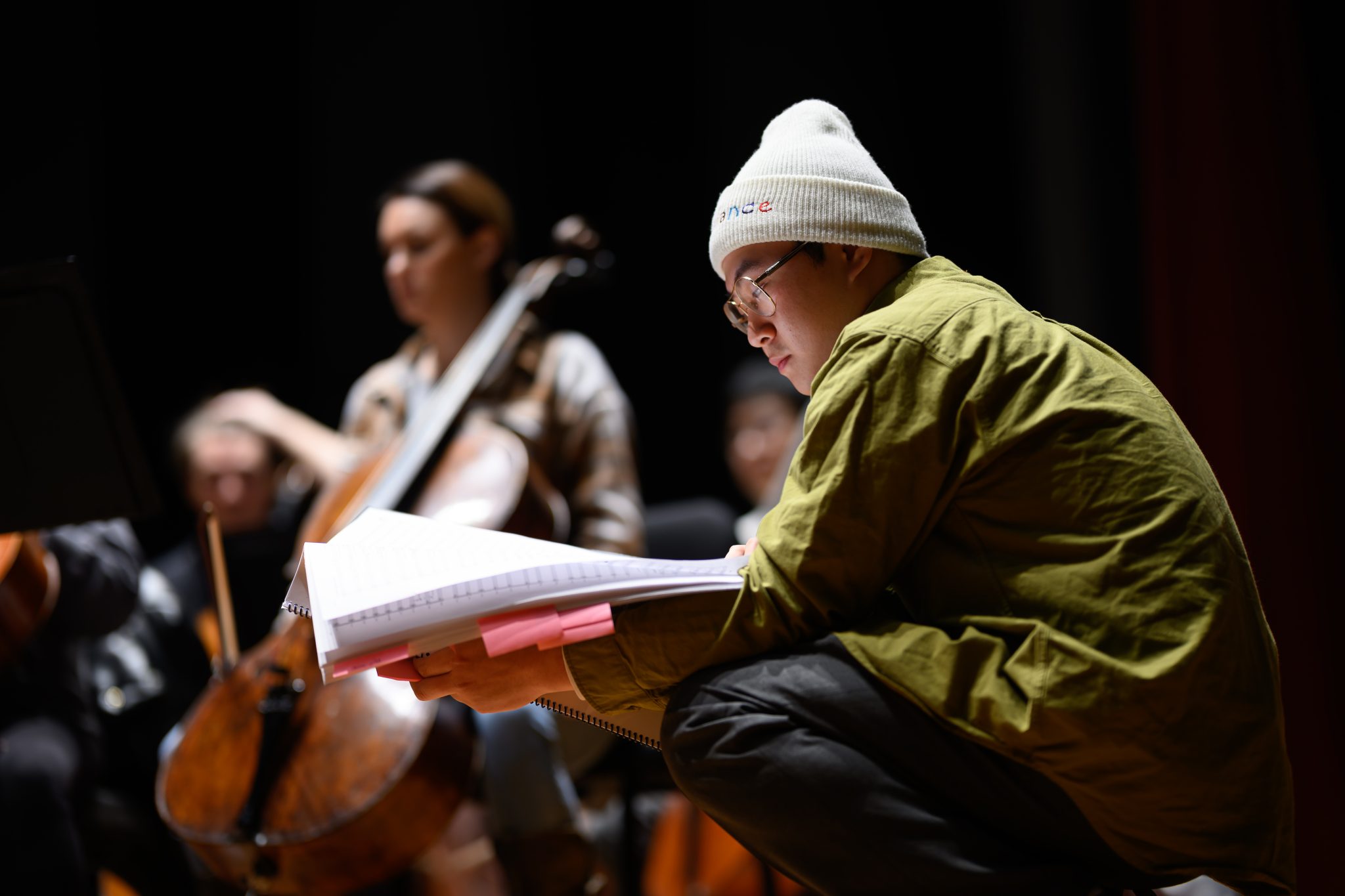Q&A with Composer Sakari Dixon Vanderveer


Composer Sakari Dixon Vanderveer’s piece The Castle Upon Crystal Shores was selected for the Buffalo Philharmonic Orchestra EarShot New Music Readings, where it will be rehearsed and performed under the direction of conductor Bradley Thachuk, with mentorship from composers Robert Beaser, Chen Yi, and Jerod Impichchaachaaha’ Tate. Reading sessions are free and open to the public on January 28, 2020 at 10am and January 29, 2020 at 7pm at Kleinhans Music Hall. Click here for more information.
Sakari Dixon Vanderveer’s compositions are primarily inspired by a desire to write music for those around her. While earning her BM in Composition at the University of Redlands, Sakari’s relationships with her colleagues developed into commissions from Spencer Baldwin, Kelsey Broersma, and years later, the PHAZE Ensemble. Her studies with Kira Blumberg and Anthony Suter enabled her to engage with the music community not just as a composer and performer but also an advocate for contemporary music. In recent years, Sakari has continued to study primarily with Reena Esmail. Named a Sounds Promising Young Composer of the Salastina Music Society for the 2018–2019 season, Sakari composed the piano quintet “Obsidian, rippled in moonlight, gleams” for their annual Sounds Local program under the mentorship of Derrick Spiva, Jr. Additionally, Salastina has commissioned her to write for their Sounds Festive: The Four Seasons x 2 program in December 2019. As a teacher of orchestral strings, working with youth also remains a driving inspiration behind much of her work. Sakari’s desire is that giving children from all walks of life access to contemporary music and composition will provide them with a better appreciation and understanding of concert music — new and old — so that they can cherish it and engage in it throughout their lives.
We spoke with Sakari about her piece and the EarShot program.
American Composers Orchestra: What was your reaction to finding out your piece had been selected for the Buffalo Philharmonic Orchestra EarShot New Music Readings?
Sakari Dixon Vanderveer: I vividly remember the morning that I found out that my piece had been selected. That week, I had been pretty stressed about completing another piece for a deadline that I was running behind on, and I was quite frustrated with myself for feeling as if I wasn’t making progress as I intended. For several weeks, I had been waking up earlier than usual to compose before my morning gig, and that day, I was running late to work, feeling like a complete mess, and unable to see the progress that I was making. In spite of trying not to check emails early in the morning, I impulsively opened my Gmail and saw the email’s subject line, which I had to click on. I was ecstatic but also in disbelief!
Irony tends to speak to me most clearly, and it certainly did that morning. It reminded me that even though I can sometimes feel like I’m just trudging through being a composer, the struggle of finding time for my art is far better than abandoning it and not trying at all. Something will pay off, eventually.
ACO: Can you talk about your compositional process for your selected work, The Castle Upon Crystal Shores? Does anything stand out, like mentorship from another composer or inspiration from music you were listening to at the time, as a strong influence on the piece?
SDV: The Castle Upon Crystal Shores is a piece that I will always cherish because it is the first piece that I began to write after I graduated from college and stopped composing for two whole years. I had been working full-time in a day job outside of music that I found to be mentally stimulating and enjoyable, but it often left me so exhausted at the end of the day that I did not have the energy left to compose. I jotted down a few short ideas for pieces from time to time — one or two lines, maybe — but I hadn’t developed any of those into complete works.
When I realized that regular accountability would be invaluable, I began to set aside money in my budget to pay for composition lessons since I had made a decision not to go back to school until I eliminated my debt. After listening to Garrett Hope interview Reena Esmail on his podcast, The Portfolio Composer, I learned that she happened to live close enough to me that I could commute to lessons occasionally. I knew that I admired her music since I had heard a few of her works earlier, so I sent her an email, and I’ve been taking lessons from her since! The funny part is that this piece was the first composition that we started working on together, and though I’ve set it aside multiple times for more urgent projects, years later, there is now a double barline and a performance happening, so this has been a celebration for the both of us!
This piece also marked a turning point in my writing process because the majority of my compositions up until this point have been for chamber ensembles. I learned that developing musical ideas with a greater number of players would generally take much longer to unfold than in a small ensemble because of the many orchestrational possibilities that are available. Working with a full orchestra enabled me to think about texture and timbre in broader ways.

ACO: Your bio says that you’re primarily inspired by a desire to write music for those around you. Can you talk about the ways, if any, in which your selected piece does this?
SDV: Unlike many of my recent works, The Castle Upon Crystal Shores was not commissioned by an ensemble. At the time I began writing it, I made a commitment to join several local community orchestras so that I could have opportunities to perform more regularly and continue studying repertoire. Years prior, I was inspired by Joan Tower’s interview with Frank J. Oteri on New Music Box where she discussed writing Made in America for a consortium of community orchestras. She talks about how writing for amateur performers can be advantageous because many of the orchestration techniques that suit amateurs well are also fitting for professional orchestras. Since professionals have more limited rehearsal time, there is little opportunity to experiment at that point in the process. Performing with community ensembles gave me an opportunity to reflect on what works effectively in various rehearsal situations. Additionally, I admired the idea that amateur musicians could also participate in the new music community which is frequently centered around those who are more highly trained.
ACO: What are you doing to prepare for the readings? Are there any changes you have made to your piece since its last performance?
SDV: Because this will be my first time working with a professional orchestra as a composer, I have been focusing on developing effective rehearsal strategies. It helps that I have played quite a few gigs as a violist in union orchestras, so the rehearsal process will be familiar to me for the most part.
Since this piece has not been premiered yet, I have not had a prior performance to base my last few rounds of edits on. However, at this point, I have refined the notation enough that the players will be able to interpret the ideas more clearly. I am aware that having crystal clear notation is crucial for an efficient rehearsal.
ACO: What are you looking forward to about the workshops and readings? What do you hope to learn from the experience?
SDV: First off, I’m looking forward to hearing the piece! To me, the funny paradox about having a piece that has not been performed yet is that its existence seems to be more of a theory: I can hear the sounds in my head, and I can describe them to someone else, but in the end, the score is merely a blueprint. You can’t be enveloped a sound world that exists in theory any more than you can live in a house that only exists on paper. The readings will also give me an opportunity to make any edits that could make the piece more effective and more marketable in future performances.
Aside from that, I am definitely looking forward to getting different perspectives from the mentor composers, panelists, and musicians who will be giving us feedback and career advice. I often consume information about the music business online, in books, and through podcasts, but it will be even more rewarding to hear people’s experiences in person and have the opportunity to build new relationships.
Hear Sakari Dixon Vanderveer’s The Castle Upon Crystal Shores at the Buffalo Philharmonic Orchestra EarShot New Music Readings. Reading sessions are free and open to the public on January 28, 2020 at 10am and January 29, 2020 at 7pm at Kleinhans Music Hall. Click here for more information.
Corporate gifts to match employee contributions are made by Goldman Sachs, Deutsche Bank, Triton Container International Incorporated of North America, and Neiman Marcus.
Public funds are provided by the New York City Department of Cultural Affairs in partnership with the City Council, and the New York State Council on the Arts with the support of Governor Kathy Hochul and the New York State Legislature, Office of Brooklyn Borough President Reynoso, and the National Endowment for the Arts.






